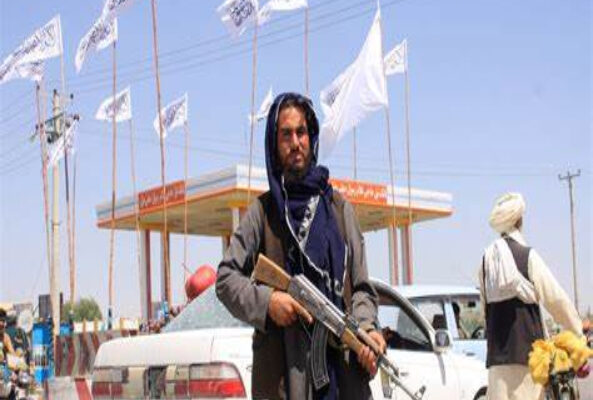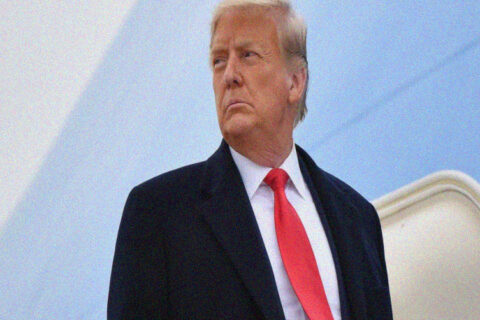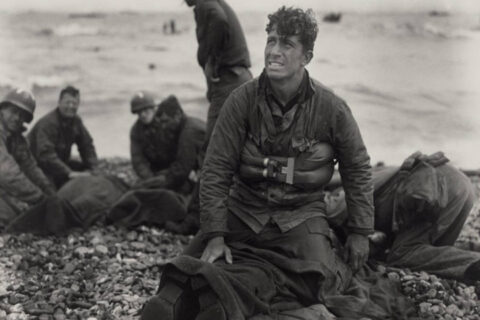Back in 2002, I was an adult college student, a veteran, getting ready to wrap up my Bachelor’s Degree and hopefully teach history. I wrote a paper for a political science class that gained the attention of the U.S. Army, a small government agency, and the Canadian military, regarding the utilization of Iraq as a good base for interconnected Sea Lines of Communication (SLOC) support. That was before the invasion. That paper helped me land a government job.
A year after that paper, I noticed a pattern within the little noticed Harmonized Tariff Schedule (HTS). The importation of key weapons making materials could be traced to various exporters and importers doing simple algorithm searches of key ingredients. This could also be utilized to find anomalies, such as kidney dialysis support (for example) traveling to obscure locations. I presented my studies and theory to the U.S. Army War College in Carlisle, Pennsylvania. A year later, I was a graduate student concentrating on Islamic Studies in preparation for a potential intelligence career – with a full ride through graduate school.
For two years, all I studied was Islamic movements and the cultivation of Islamist insurgencies. I traveled abroad and completed my studies, debriefing Israeli intelligence personnel and members of the Palestinian Liberation Organization (PLO). That was a lifetime ago. My first trips into the region after Israel, Palestine, and Lebanon, were Kyrgyzstan and Uzbekistan. I would spend almost two decades in the region – along as travel to other hotbeds, such as Cote d’Ivoire and the Democratic Republic of Congo – doing work on behalf of the Empire. Although I frequently traveled to Iraq, the place within which I worked the most was Afghanistan.
Anyone who studies Islamic cultures of the Eurasian continent ultimately finds themselves studying the cultural bowl of spaghetti that is Afghanistan, “The Graveyard of Empires.” The vast majority of Islamic peoples upon the Eurasian landmass are Turkic peoples. There are/were ninety-two distinct Turkic speaking tribes, from Osmanli (Ottoman), to the Kyrgyz. Afghanistan is not a Turkic dominated region. Afghanistan is at a bizarre geographic juncture. The Soviets, who were accustomed to dominating and incorporating Turkic Muslim peoples were not ready for a very different cultural construct. Nor were the Americans. Herein is where things, in my opinion, broke down.
Afghanistan is comprised of twelve different tribes, of which two of the tribes – Pashtos and Tajiks – comprise a combined majority (approximately, 45% and 30%, respectively). Afghans care about their tribe, but not “Afghanistan” as a geopolitical construct. Therefore, in order for “Afghanistan” to succeed, you need to either invest the Pashtos into the international community or recruit the other roughly 25% of Afghanistan’s tribal peoples to support the Tajiks. But this is where it gets complex. The Tajiks are a Farsi (Persian dialect) speaking people, and although Sunnis, I have heard Pashtos and Uzbeks describe Tajiks as Shi’ites (even though they are not). Regardless, it is obvious that the Tajiks are considered just as foreign to the minority Turkic speaking tribes on Afghanistan’s periphery as the Pashtos, who also derive from a non-Turkic originated people. The Pashto plurality is more closely aligned with the Pakistanis to their East. In other words, both parties are unacceptable and therefore, a true majority could never really resonate to form a dominant coalition to defeat the more aggressive and determined Pashtos. But there is more.
Of that twenty-five percent remaining who are neither Tajik nor Pashto, about 10% are ethnic Shi’ite Hazara, who are hated by both the Tajiks and the Pashtos. They have their own thing going on in Western Afghanistan with Iranian support. During the heyday of the Taliban’s pre-American invasion, the Pashto Taliban caused trouble for the Hazara, but never broke them. They seemed to live in relatively peaceful isolation through a strong ethnoreligious identity. Moving forward, the Hazara were never going to assist the American-backed Kabul regime, unless it directly benefited their people (such as, intelligence sharing).
The rest of the Afghans, consequently, looked at the break down of options in the following way: why trade religiously inspired tyrants (Taliban Pashtos) for secular tyrants (Western-supported Tajiks)? At least the religious tyrants largely leave you alone as long as you are a practicing Muslim. The Tajik secular tyrants were pushing aggressive transformative policies as a condition of American funding – such as transgenderism, an acceptance of homosexuality/homosexual marriage, and women’s empowerment. Therefore, the other tribes sort of sat back and waited to see which side would ultimately win – which as of this past weekend, turned out to be the Taliban Pashtos.
Here is where this all comes full circle.
The United States is no longer a functioning nation-state, but the reason is obvious to the Dissident Right, Communist China, and the Taliban. The U.S. is so engrossed in a materialistic globalism that it has fully abandoned its own nationalist identity; it simply cannot conceive of a people – such as the various “Afghans” – wedded to their ethnic national identity more than material comforts. American policy makers truly believed that if more money, more infrastructure, and more secular comforts were showered upon the Afghan peoples – from their Tajik lapdogs – that the other tribes would give up their dogged determination to remain a distinct nation (i.e., distinct ethnoreligious and racial identities) and embrace the Tajik version of Afghanistan. That did not happen. In fact, it never was going to happen because American politicians and strategic thinkers have no appreciation for nationalism or national identity. It is such a dirty word for them, that they fail to incorporate nationalist concepts into practical strategies.
While Provisional Reconstruction Teams (PRTs) were sent out with “Gender Advocates” teaching traditional peoples that it is “OK to be Gay,” the foreign concepts of degenerate modernity pushed them away from supporting the Kabul regime. Whereas such policies likely pleased a domestic coalition of suburban soccer moms with BLM lawn signs, purple haired lesbian activists, and Democrat politicians, it was a strategic mistake. The fact that the Tajiks seemed to support such lascivious behavior because they were paid handsomely for their compliance served to make them even more unacceptable to the coalition they needed most. When American veterans wonder aloud, “Why didn’t the other Afghans fight harder alongside us to keep out the Taliban?” The answer is staring those veterans in the face: we were fighting without moral clarity, for ideals that were both entirely foreign, offensive, and sinful to the vast majority of the Afghan people. In other words, whereas the Taliban were never the “good guys,” our attempt to corrupt traditional Afghan society made us the “bad guys.”
So, what happened in Afghanistan? The Americans believed that Afghans could be enticed to abandon their national identities with degenerate modern values and comforts, which would lead them to support a different foreign faction in power. That was always a losing strategy. Yet again, the Americans failed the occupation game and they did so because, like Vietnam, they failed to appreciate the fact that tribal bonds – Nationalism – will always defeat secular modernity and globalism. Remember that lesson, Southerner.
The son of a recent Irish immigrant and another with roots to Virginia since 1670. I love both my Irish and Southern Nations with a passion. Florida will always be my country. Dissident support here: Padraig Martin is Dixie on the Rocks (buymeacoffee.com)






How can these articles be shared? FB will not allow sharing from Identity Dixie.
Send them directly to people who you think would be interested and ask them to do the same. Gab is an ascending format where could also share .
Fine article brother, keep up the good work.
Thank you, Gentlemen, for the compliments.
Jim – unfortunately, Facebook blocks everything ID. You can sometimes archive and share via private messages. Thank you for reading.
Great article summarizing so much about this alien part of the world. It makes sense that the Empire’s policy was so bad that tacit acceptance of the Taliban was preferable to many.
I greatly enjoyed all this information and fantastic insights.You truly are gifted and have a great understanding of things you expound on.I learned quite a bit from this piece and it also shows that peoples worldwide reject the Jewish perversions foisted upon all of us.Will the Heavenly Father send us a way to help ourselves,a way to change the course that crushes us.I do believe he will.We must all pray and ask that he give us that spark which can set things in motion.We are God’s image,he made us not to be abused.We have taken enough.Satan hurts us to hurt God.We must be resolute and worthy of the victory we ask for.We must eschew Jewish materialism and magic and modernity.My prayers for all here and in this cause to be safe from evil, and healthy.